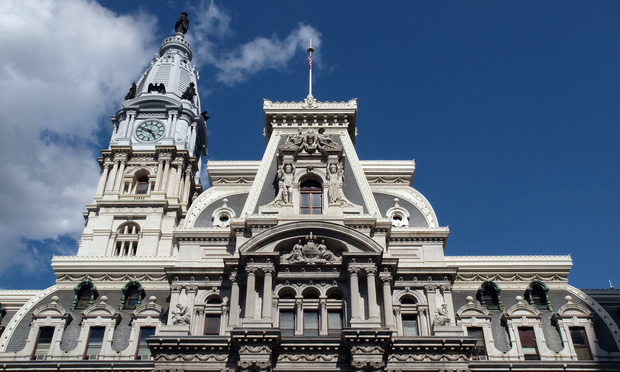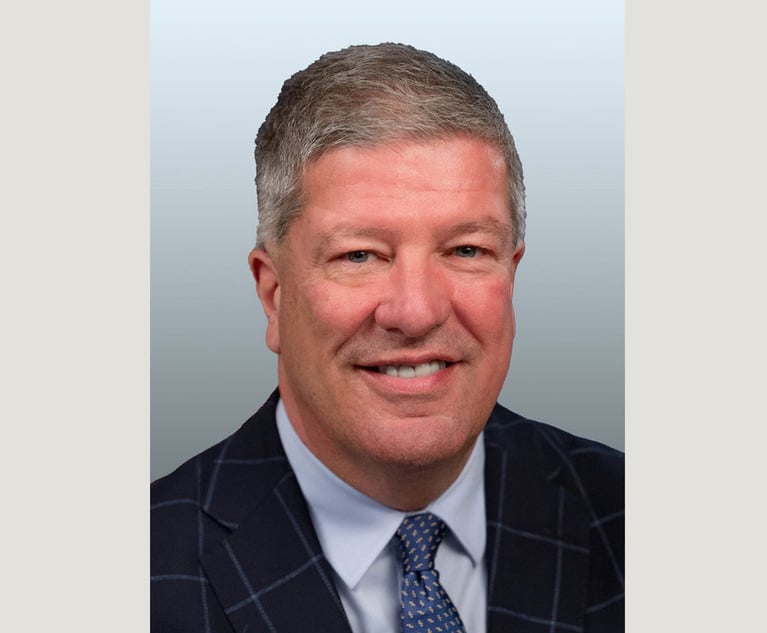Crowded Field Vying for Six Seats on Phila. Common Pleas Bench
The crowded field is only slightly fewer than the 50 candidates who fought for nine open seats on the Common Pleas bench in 2017, and the 47 candidates who fought for 12 open seats on the Common Pleas bench and three Municipal Court slots in 2015.
March 15, 2019 at 02:06 PM
3 minute read
 Photo: Shutterstock
Photo: Shutterstock
There may not be as many seats available as in previous years, but the race to become a judge in Philadelphia is just about as crowded as usual.
As of the March 12 deadline to get on the ballot for 2019 judicial races, 41 contenders have filed to vie for six open seats on the Philadelphia Court of Common Pleas, according to the Pennsylvania Department of State. Thirteen candidates have also filed to fill one vacancy in the Municipal Court. All but two of the Municipal Court candidates are also seeking spots on the Common Pleas bench.
The crowded field is only slightly fewer than the 50 candidates who fought for nine open seats on the Philadelphia Court of Common Pleas bench in 2017, and the 47 candidates who fought for 12 open seats on the Common Pleas bench and three Municipal Court slots in 2015.
As for why the number of available seats is down, observers pointed to the amendment passed in late 2016 that raised the age of judicial retirement from 70 to 75.
As for why the number of candidates remains high, observers said the job comes with a good salary, benefits and prestige, as well as an opportunity to serve the public.
“People who want to serve as judge and who want to serve the public in that way, that desire isn't going to go away based on the number of slots,” election attorney Adam Bonin said.
Jeff Jubelirer also noted that a judgeship can be seen as capstone on a legal career, or a launching points for other political endeavors, noting that former Philadelphia District Attorney Lynne Abraham was a judge for decades before taking on the role of Philadelphia's top prosecutor.
See the List of Candidates:
Although interest remains high, observers also noted that the number of candidates is likely to drop significantly when ballot placement is determined, which is often the largest factor in determining outcome. In 2017, the top four vote-getters were listed on the ballot as first, second, 25th and third on the ballot, respectively.
The ballot placement is expected to be set March 20.
Jubelirer noted that party endorsement is another stage where the field is likely to narrow.
“If you go against the party, you have to go to the wards to get them to put your name on the sample ballots,” Jubelirer said. “But it's still not going to be as big an effort as the party.”
The current field includes multiple candidates who are running for at least the second time and several familiar faces, including Beth Grossman, who ran unsuccessfully against Larry Krasner in the 2017 race to become Philadelphia's district attorney. According to the Department of State, Grossman is also the only candidate that is running on both the Democratic and Republican tickets.
Court watchers also lauded the field for its diversity.
Although currently the field is skewed heavily white—with at least 32 candidates being white and seven being African-American—there is more parity when it comes to gender, with 19 women and 22 men running. Also, if elected, Kay Yu would become Pennsylvania's first Korean-American judge, and Henry Sias would become the first transgender man in the country to be elected judge.
This content has been archived. It is available through our partners, LexisNexis® and Bloomberg Law.
To view this content, please continue to their sites.
Not a Lexis Subscriber?
Subscribe Now
Not a Bloomberg Law Subscriber?
Subscribe Now
NOT FOR REPRINT
© 2025 ALM Global, LLC, All Rights Reserved. Request academic re-use from www.copyright.com. All other uses, submit a request to [email protected]. For more information visit Asset & Logo Licensing.
You Might Like
View All


Stevens & Lee Hires Ex-Middle District of Pennsylvania U.S. Attorney as White-Collar Co-Chair
3 minute read
Judge Tanks Prevailing Pittsburgh Attorneys' $2.45M Fee Request to $250K
5 minute readTrending Stories
- 1Law Firms Expand Scope of Immigration Expertise, Amid Blitz of Trump Orders
- 2Latest Boutique Combination in Florida Continues Am Law 200 Merger Activity
- 3Sarno da Costa D’Aniello Maceri LLC Announces Addition of New Office in Eatontown, NJ, and Named Partner
- 4Friday Newspaper
- 5Public Notices/Calendars
Who Got The Work
J. Brugh Lower of Gibbons has entered an appearance for industrial equipment supplier Devco Corporation in a pending trademark infringement lawsuit. The suit, accusing the defendant of selling knock-off Graco products, was filed Dec. 18 in New Jersey District Court by Rivkin Radler on behalf of Graco Inc. and Graco Minnesota. The case, assigned to U.S. District Judge Zahid N. Quraishi, is 3:24-cv-11294, Graco Inc. et al v. Devco Corporation.
Who Got The Work
Rebecca Maller-Stein and Kent A. Yalowitz of Arnold & Porter Kaye Scholer have entered their appearances for Hanaco Venture Capital and its executives, Lior Prosor and David Frankel, in a pending securities lawsuit. The action, filed on Dec. 24 in New York Southern District Court by Zell, Aron & Co. on behalf of Goldeneye Advisors, accuses the defendants of negligently and fraudulently managing the plaintiff's $1 million investment. The case, assigned to U.S. District Judge Vernon S. Broderick, is 1:24-cv-09918, Goldeneye Advisors, LLC v. Hanaco Venture Capital, Ltd. et al.
Who Got The Work
Attorneys from A&O Shearman has stepped in as defense counsel for Toronto-Dominion Bank and other defendants in a pending securities class action. The suit, filed Dec. 11 in New York Southern District Court by Bleichmar Fonti & Auld, accuses the defendants of concealing the bank's 'pervasive' deficiencies in regards to its compliance with the Bank Secrecy Act and the quality of its anti-money laundering controls. The case, assigned to U.S. District Judge Arun Subramanian, is 1:24-cv-09445, Gonzalez v. The Toronto-Dominion Bank et al.
Who Got The Work
Crown Castle International, a Pennsylvania company providing shared communications infrastructure, has turned to Luke D. Wolf of Gordon Rees Scully Mansukhani to fend off a pending breach-of-contract lawsuit. The court action, filed Nov. 25 in Michigan Eastern District Court by Hooper Hathaway PC on behalf of The Town Residences LLC, accuses Crown Castle of failing to transfer approximately $30,000 in utility payments from T-Mobile in breach of a roof-top lease and assignment agreement. The case, assigned to U.S. District Judge Susan K. Declercq, is 2:24-cv-13131, The Town Residences LLC v. T-Mobile US, Inc. et al.
Who Got The Work
Wilfred P. Coronato and Daniel M. Schwartz of McCarter & English have stepped in as defense counsel to Electrolux Home Products Inc. in a pending product liability lawsuit. The court action, filed Nov. 26 in New York Eastern District Court by Poulos Lopiccolo PC and Nagel Rice LLP on behalf of David Stern, alleges that the defendant's refrigerators’ drawers and shelving repeatedly break and fall apart within months after purchase. The case, assigned to U.S. District Judge Joan M. Azrack, is 2:24-cv-08204, Stern v. Electrolux Home Products, Inc.
Featured Firms
Law Offices of Gary Martin Hays & Associates, P.C.
(470) 294-1674
Law Offices of Mark E. Salomone
(857) 444-6468
Smith & Hassler
(713) 739-1250





